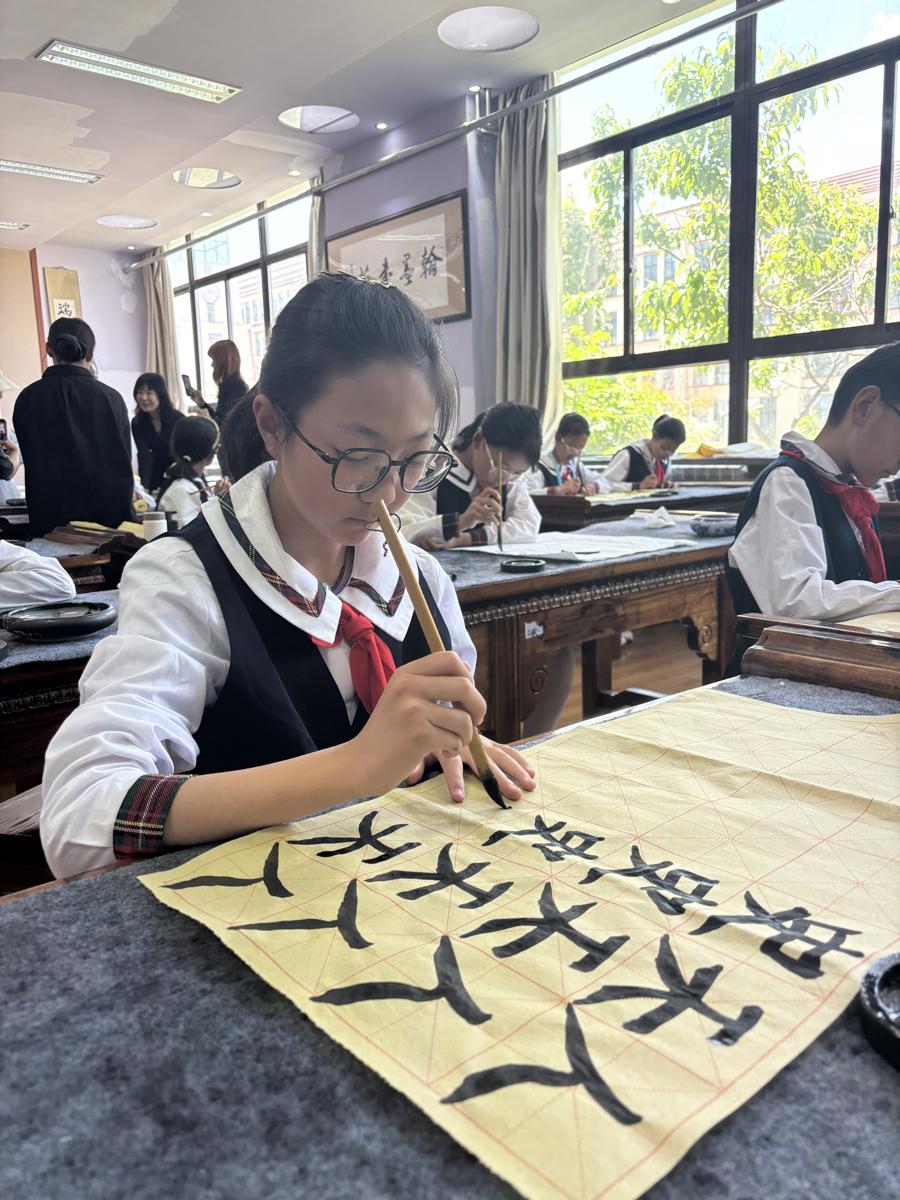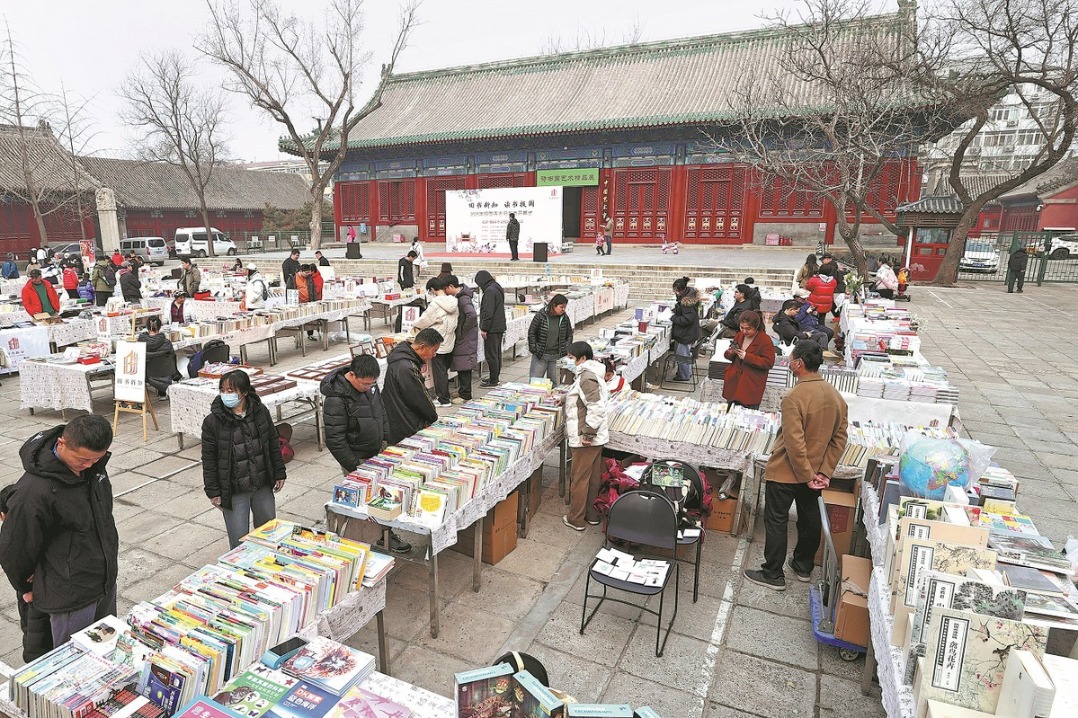Foreign delegation visits schools in Lhasa


On Thursday afternoon, the Lhasa Experimental Primary School and the Xizang University of Tibetan Medicine received a delegation of foreign media and think tanks, comprising 15 individuals from eight countries, in Lhasa, Xizang autonomous region.
The individuals of the delegation came from Russia, Japan, India, Thailand, Sri Lanka, Mongolia, Switzerland, and Nepal. Their visit included stops at cultural sites in Nyingchi and Lhasa, as well as the classrooms and dormitories at the primary school.
According to Yu Biqiong, headmaster of the school's Jiaoyucheng branch, the school exempts all costs for their students just like all other elementary schools in the region. Parents are only asked to chip in for additional class requirements, like buying a craft model for the science class.
Though most parents have applied for boarding services, it is optional if the students want to choose day study, according to Yu.
"Some parents do not have the time to pick up or send their kids to school. Some kids are cared for by their grandparents," Yu explained. "Many parents aren't able to take care of the kids every day, so they prefer boarding."
According to the school, the curriculum covers elements of Tibetan culture, including calligraphy, guitar, dance, and chess.
The delegation also visited the Xizang University of Tibetan Medicine, where they were given a tour by Dorje Rinchen, the vice-president of the university.
Dorje Rinchen said that the university had achieved multiple accomplishments in inheriting and developing traditional Tibetan medicinal culture in recent years.
The university recently passed the undergraduate education teaching assessment conducted by a team dispatched by the Ministry of Education.
Dorje Rinchen said his university boasts a comprehensive education system offering bachelor's, master's, and doctoral degrees. It currently has over 2,700 students.
The university has produced nearly 8,000 graduates who have made contributions to Tibetan communities, particularly in rural areas.























